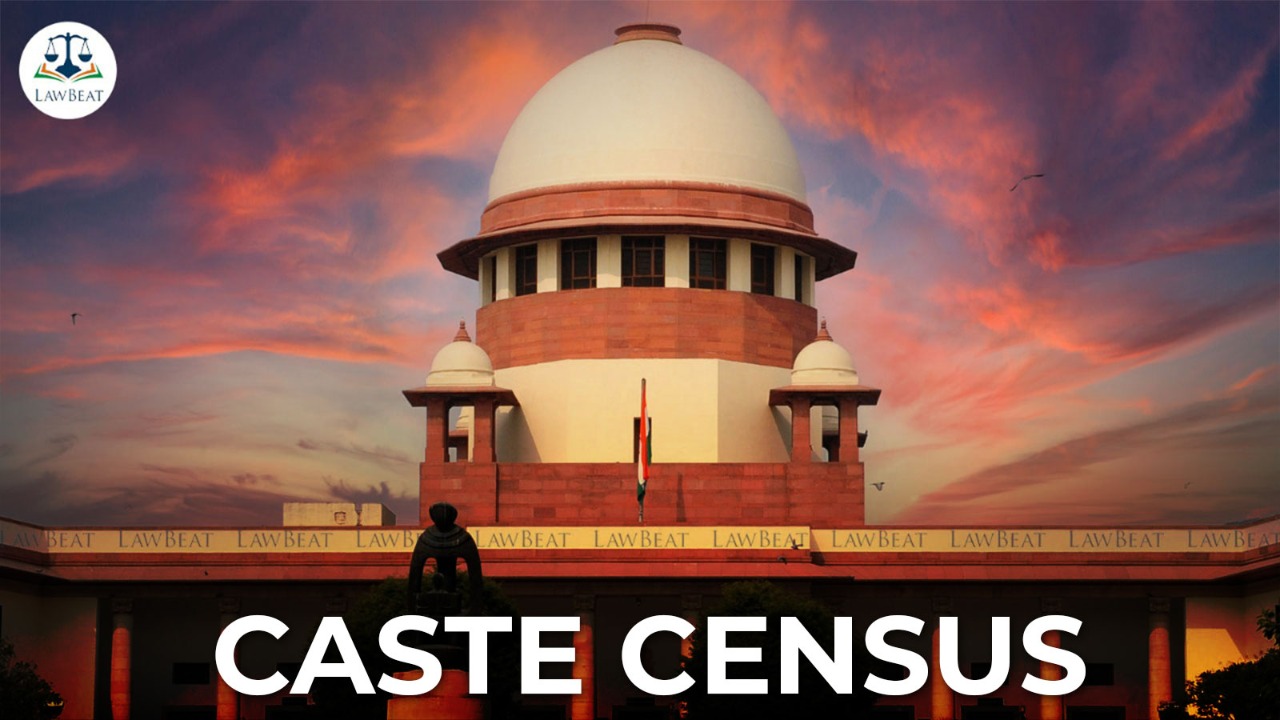If caste breeds social unrest so does religion, caste census of OBCs is 'vital necessity': Plea before Supreme Court

A writ petition has been moved before the Supreme Court seeking directions for caste-based census for the Other Backward Classes (OBCs) in the 16th Indian Census which will be taken this year. The matter is listed to be heard on April 11, 2022 (Monday) before the bench of Justice L. Nageswara Rao and Justice B.R. Gavai.
The petitioner, Krishan Kanhaya Pal, a practicing advocate at the Allahabad High Court, belongs to the 'Gaderia' caste which is listed in the OBC category. In his petition, which was filed in September last year but got listed after a long time, Pal states that caste-based census of the OBCs is a 'vital necessity'.
Pal has reasoned that though the Central Government and State Governments are introducing and implementing multiple schemes for the socio-politico-economic development of backward castes, they are unable to share the benefits with all sections among backward castes due to lack of caste based survey.
Importantly, Pal's plea avers that the majority of society's mainstream media and opinion-makers are trying their best to delegitimize the rationality of caste-based census but the opponents of caste enumeration lack any novel argument.
"They are replicating the same fear psychosis that it will breed casteism, divide society, and increase the existing caste-based quotas, which has been used against every other progressive measure centered around caste," the plea reads.
Pal has argued that it is absurd to think that caste can be eradicated and social harmony can be achieved only if we do not count castes. He has contended,
"It is a settled debate that modern complex societies cannot function without the widespread documentation and categorisation of the population. That is why "legibility" and "simplification" have been seen as part and parcel of modern statecraft. Besides, what is being counted and not counted must be based on principles and not arbitrary factors. If caste breeds social unrest-as is widely argued by the opponents of caste enumeration - so does religion. Then, why are we counting the latter? Any observer of Indian society would suggest that caste and religion continue to be the twin central axes that structure the relations of domination subordination."
Further, claiming that the current political establishment has sent confusing signals regarding the issue, Pal's plea reads,
"In response to a question in Parliament on 20 July (2021), Union Minister of State for Home Affairs Nityanand Rai said the government had decided to not conduct a caste-wise enumeration of the population, except in the case of Scheduled Castes and Scheduled Tribes. (However) BJP National General Secretary Dushyant Gautam told ThePrint that the demand is very much in the BJP's mind, and when the right time arrives, the government will consider it, as of now the party does not have an informed opinion about it."
The plea further states that despite the announcement of Mr. Rajnath Singh in 2018, the then Union Home Minister, that there would be a census of the OBC population during the 2021 Census, the government has refrained from tabling the report of the Rohini Commission that was established in 2017.
(Explainer: Justice Rohini Commission was constituted for sub-categorization of OBCs and review of the central list to make the benefits of the special schemes and reservation quota reach the marginalized communities in the existing Central list of OBCs that had not been able to get any major benefit yet.)
The plea mentions that the last caste based census was held in the year 1931, and in the 1941 census, though caste-wise information was collected, but was not released. "After the independence of the country, the government of India has decided to release the data of only Schedule Caste and Schedule Tribes, after 1931, the caste-based census was not published/held," the plea adds.
Therefore, stressing that after the year 1931, the condition and population of other backward castes have changed, Pal's plea states that now a caste-based census of the OBCs is mandatory for the socio-economic development of more than 52 percent of the population of India.
"To conclude, caste enumeration should not merely be perceived as an instrument to facilitate robust and targeted policies and to revitalise reservations...it must be seen as mechanism to facilitate a much-needed an informed debate, bereft of assumptions and prejudices on what has been achieved and what needs to be done for societal transformation. There is no harm in counting castes, and the Indian government must reconsider its decision if any sense of justice and fairness is left," Pal's plea states.
Case Title: Krishan Kanhaya Pal Advocate v. Union of India & Ors.
